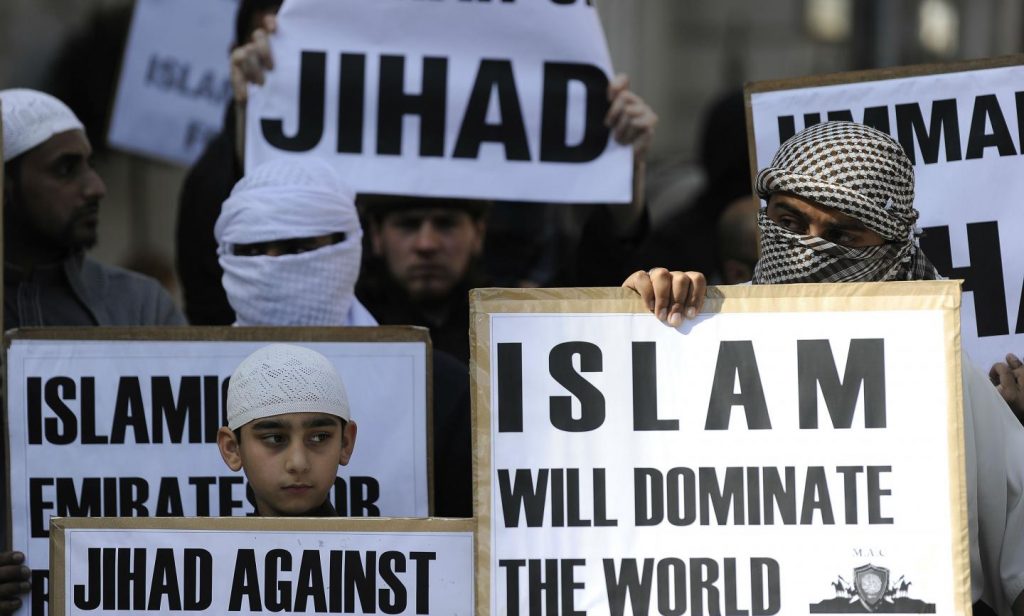
New Delhi: The Centre has sought inputs from states on whether the ‘Singapore Model’ to counter Islamic radicalization with community involvement can be implemented in the country. According to this model, the government instead of taking radicalized youth through a long criminal trial will impart lessons in nationalism and religious rehabilitation with the help of popular scholars and community leaders.
“For Indian conditions, among various counter-radical programmes being undertaken by different countries, the Singapore Model, which is a combination of hard security measures and stringent laws with community involvement, is best suited. Action may be taken by DGP of states/UTs,” says a note sent on January 21 this year by Union ministry of home affairs (MHA) to police chiefs and home departments of states. UP, Kerala and Assam are among the few states from which MHA has sought this assistance.
The Saudi experience
Saudi Arabia’s PRAC (Prevention, Rehabilitation, and Aftercare) policy seeks to expand responsibility well beyond the government to private citizens, and includes counseling programmes that draw on local traditions and religious culture to underscore both the importance given to rehabilitation for criminals and the use of religious figures in prisons. According to estimates, the re-arrest rates are low: at one to two percent and this indicates that counseling and aftercare programmes do create an impact.

Impressed with the success of the Saudi’s PRAC program other countries like Algeria, Egypt, Jordan, Yemen, Indonesia, Malaysia and Singapore have established rehabilitation and engagement programmes as well.
The Singapore model
Before 9/11, Singapore had no idea that it had a terrorist problem. But after the Sept. 11 attacks, the government was tipped off that a cell of Jemaah Islamiyah, the Southeast Asian militant group with links to al-Qaeda, was planning attacks across the city-state. In raids in late 2001 and 2002, more than 30 members of the terrorist outfit were arrested followed by more arrests. While the United States was filling its detention center at Guantanamo bay with foreign fighters, Singapore began to house its own population of radical Muslim extremists in its jails.
Singapore’s CVE programme has initiated many policies to de-radicalize the extremists. For example, the government housing cannot be ghettoized. The races are distributed throughout the Housing Development Board units and no one is discriminated against. But if anyone is found preaching extremism then they can expect a visit from the authorities.
This program focuses on rehabilitation and countering ideology and also includes psychological rehabilitation and the continuous assessment of detainees. Like Saudi Arabia, their programmes for detainees include counseling by religious leaders, vocational training, and even financial support to families.
A detainee in Singapore is not released until his/her case officer, a psychologist and the religious counselor signs off. Even then the decision goes to the prime minister’s cabinet to give its approval. Singapore’s political accountability rests at the top and this has been the main reason behind its successful de-radicalizing program.
Can it work in India?
In late 2016, India’s National Investigation Agency received a call from the family of a Muslim youth from Kerala who had joined ISIS.
According to a report in The Indian Express on 2 December 2016, Ashfaq’s father, Abdul Majeed, told the NIA that after sending a WhatsApp voice message to a family member, informing them that he had reached Afghanistan, where he would remain, Ashfaq had called his mother and spoken to her briefly to urge his family to join him in the “land of Islam.” Abdul Majeed then told his wife to never again accept any messages or calls from the number Ashfaq had called from, and reported the call to the NIA.
Majeed was indoctrinated into extreme jihadi ideology, along with others, by a group of like-minded people from the Kasargod district of Kerala. Some members of Zakir Naik’s Islamic Research Foundation were also responsible for motivating and funding Ashfaq and his associates to join ISIS.

Majeed’s case is a classic example of effective community involvement in identifying terror suspects.
According to a report published in ORF, “Unlike the West, where lone-wolf attacks by individuals who pledge allegiance to the Caliphate have become the most urgent security challenge, in India, ISIS detainees and arrests currently account for only 0.0002 percent of all terror suspects in the country so far.”
According to available information, the number of ISIS-related arrests stands at 90 people between January 2014 and June 2017. A total of 88 Indians or members of the Indian diaspora are believed to have joined ISIS in Iraq and Syria, and another 80 people have so far been prevented from joining the group via different means employed by agencies, including family intervention.
Internet monitoring
The Internet is an important medium for radical extremists to indoctrinate impressionable minds and the government needs to combat the presence of such elements to keep a check on the online presence of online propaganda.
Last month, Indonesia launched a new cyber-security agency to tackle online religious extremism and fake news on social media. The archipelago nation has long struggled with Islamic militancy and attacks, including the worst- terror attack in 2002 (Bali bombings) that killed 202 people, mostly foreign tourists.
So far, global and regional efforts to destroy terrorist organizations with military might has failed as force alone is not enough to eliminate the ideological, cultural, social, political and psychological remnants.
CT (Counter Terrorism) policymakers and practitioners also believe that one cannot and will not defeat terrorism with pure kinetic and military strategies. To confront terrorism at its core, a society-wide approach is required through CVE (Countering Violent Extremism) activities. It involves tackling radical ideologies by engaging a wide spectrum of stakeholders — namely law enforcement, researchers, educators, social service providers, civic activists, psychologists, faith leaders, public officials, business owners and thought leaders.
In conclusion, if the government is really serious about dealing with religious extremism, especially in the hinterland, then they have to work with the communities and empower civil-society networks to help counter terror through the various methods and means available.








